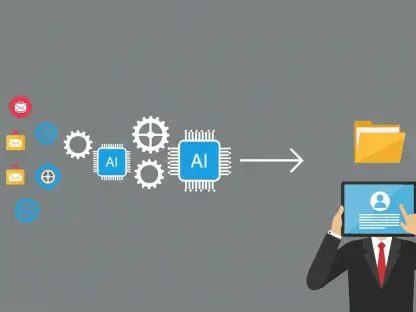Over recent years, the European Union (EU) has emerged as a pioneering force in the realm of artificial intelligence (AI) regulation, establishing itself as a benchmark for ethical governance in technology. The EU’s deliberate and assertive approach to regulating AI is exemplified through its commitment to the EU AI Act, which underscores the significance of responsible AI development and deployment. Central to this framework is the introduction of the General-Purpose AI (GPAI) Code of Practice, aimed at ensuring transparency, accountability, and human rights alignment in AI systems. This dedication to regulation without delay signifies a profound resolve to shape and lead global conversations on AI ethics, establishing a structured pathway for other regions to potentially follow.
Commitment to Regulatory Framework
The EU’s insistence on pushing forward with the AI Act despite pressures from major technology stakeholders signals a bold commitment to ethical technology advancement. The formation of the GPAI Code of Practice is a significant component of this journey. Made public on July 10, the Code offers organizations a clear set of guidelines to align with the AI Act’s directives, emphasizing harmonious integration of AI in societal frameworks. It provides a roadmap for voluntary compliance, promising reduced administrative burdens and enhanced legal clarity for organizations that choose to engage with its stipulations.
The Code delineates three fundamental chapters titled “Transparency,” “Copyright,” and “Safety and Security.” Each chapter outlines crucial aspects of AI model governance that are imperative for ethical deployment. Transparency involves clearing the haze around AI decision-making processes, ensuring stakeholder understanding and consent. Copyright secures intellectual property while allowing for innovation and creative input in AI model development. The Safety and Security chapter focuses on safeguarding AI systems, emphasizing reliability and reduced risks in their operations. These foundational elements provide a comprehensive framework for AI providers, catering to different dimensions of ethical deployment.
A Structured Roadmap to Ethical AI
The EU has been persistent in its vision of a structured AI-regulatory environment. Upcoming milestones include August, when several significant provisions of the AI Act will become effective, followed by complete execution by August 2026, except for particular exemptions extending to 2027. This progression marks an incremental approach to comprehensive regulation, allowing ample time for stakeholder adaptation while maintaining momentum towards ethical deployment. Continuous stakeholder dialogue and vigilant monitoring are expected to play vital roles in ensuring the Act’s successful embedding into regional and potentially global technology standards.
This methodical approach not only demonstrates Europe’s resolve but also sets an essential precedent for other legislations worldwide. By focusing on ethical advancement rather than purely technological, the EU differentiates itself, encouraging sustainable development amid rapid innovation. The final version of the GPAI Code indeed marks a substantial evolution in Europe’s commitment to setting a global standard in AI governance. As an overarching strategy, it elevates ethical considerations within technology, establishing a platform for balanced AI growth.
The Implications of Europe’s Leadership
In recent years, the European Union (EU) has stood out as a leader in setting standards for AI regulation, becoming a model for ethical governance in technology. By focusing on crafting policies for artificial intelligence, the EU has committed to the EU AI Act, a cornerstone in its regulatory framework. This act emphasizes the importance of developing and implementing AI responsibly. A key component of these efforts is the General-Purpose AI (GPAI) Code of Practice, which aims to ensure AI systems are transparent, accountable, and respect human rights. The EU’s proactive stance and timely enactment of regulations demonstrate its strong intention to lead global discussions on AI ethics. By establishing these standards early on, the EU not only aims to protect its citizens but also creates a structured path that could be adopted by other regions worldwide, furthering the pursuit of ethical AI. This initiative reflects the EU’s ambition to steer the global dialogue on responsible AI use and governance.









